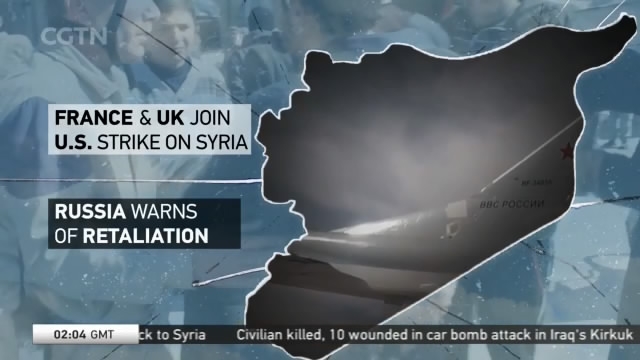
10:34, 16-Apr-2018
Syria Crisis: How the turmoil began

The turmoil in Syria started as a domestic conflict and it expanded into a regional one, then evolved in a geopolitical proxy war. CGTN's Roee Ruttenberg explains.
In one way or another, Turkey, Iran, Saudi Arabia, Israel, Russia and the U.S. are all now involved in Syria's civil war. And each has a stake in its possible outcome. Inside Syria, ISIL has largely retreated in the face of two offensives: the US-led alliance, that's included Ankara and Riyadh; and Syrian government forces, backed by Damascus, Tehran and Moscow. And with their help the Syrian government is focused on fighting the rebels - some moderate, some Islamist, some Kurdish. Russia says the US is backing terrorists, in its efforts to topple President Bashar al-Assad. It's going after them. Ankara hates that Washington is backing Kurdish fighters. Their stronghold in the north has unnerved Turkey, which fears the Kurds have national - and armed - ambitions on Turkish soil. Turkey has been striking them on Syrian territory. Iran has some of its most elite forces on the ground in Syria, helping keep Assad in power. Tehran also supports Lebanese Hezbollah fighters, helping Syrian forces in the West. That's spooked Israel, which has been accused by Damascus - and Moscow - of striking Syrian bases. The Israelis say they won't allow the Iranians to set-up camp alongside their border. The Saudis also don't like the Iranian show of strength in Syria. They also don't like Assad. They've been supplying weapons to the rebels trying to oust him. And early Saturday, France and the UK joined a US-led strike on Syria. Russia had already warned all three: there would be retaliation. Roee Ruttenberg, CGTN.

SITEMAP
Copyright © 2018 CGTN. Beijing ICP prepared NO.16065310-3
Copyright © 2018 CGTN. Beijing ICP prepared NO.16065310-3